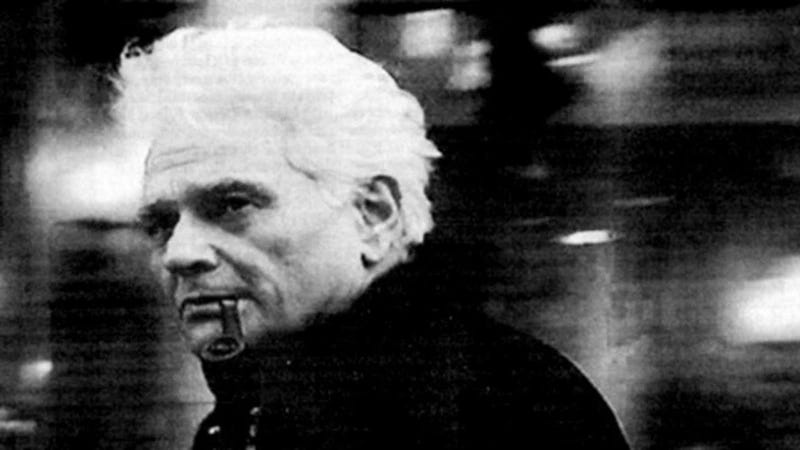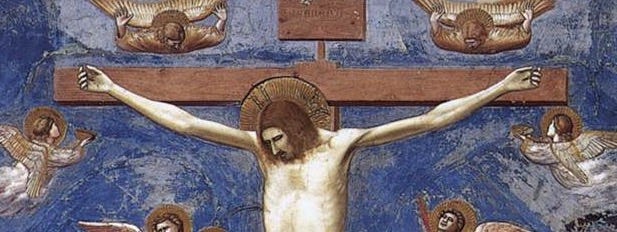Let me come right out and say it: our misunderstanding of forgiveness has done generations of damage—not just to theology, but to our fundamental understanding of Christ’s work and our connection to it. Let me explain.
Ask most people why Jesus died, and you’ll likely hear some version of: “Jesus died for my sins.” That’s not a bad answer, as far as it goes. It echoes Paul’s own words in 1 Corinthians: “Christ died for our sins in accordance with the scriptures…” We’ll come back to that translation in a moment.
From there, the usual formula unfolds: we confess our sins, accept the work Jesus did “on our behalf,” and receive forgiveness. That’s what it means to be saved. Born again. Heaven-bound. It’s neat. It’s clean. And it’s deeply transactional.
What if Jesus didn’t die to unlock God’s mercy—but to reveal a mercy that had been there all along? That’s what this piece is about. A rethinking of forgiveness. A reclaiming of grace.
I recognize there’s a mountain of atonement theology we could stack around this—layers of nuance, centuries of interpretation. But I want to focus on just one thing: how God’s forgiveness actually works in the popular formula.
To get there, let’s look at a single verse from the Psalms (103:12)
“As far as the east is from the west, so far has God removed our sin from us.”
How far is east from west? Infinitely far! God’s grace, the psalmist says, has already removed our sin—infinitely, eternally.
Here’s what’s crucial: scholars date this psalm to the post-exilic period, around the 5th century BCE. Which means: our sins were infinitely removed centuries before Jesus was even born. So what is going on here?
The answer lies in the broken way we’ve been taught to think about forgiveness. We’re told: I confess, the church pronounces absolution, then I’m forgiven. But can you hear the logic beneath that?
Insert confession | Press “Absolution” | Out drops grace.
That’s not unconditional love or divine grace. That’s a vending machine. I am convinced that is not how God works.
The scandal of grace is this: forgiveness is already offered. Sewn into the very fabric of the universe. Your confession doesn’t unlock it. It doesn’t trigger a transaction. It isn’t part of some spiritual economy where you give God something God wants and get something back in return.
Confession doesn’t change God. It changes you. It peels the scales from your eyes so you can finally see what was always true: You are already, deeply, fully forgiven.
Word Study: Two Languages, Two Logics
There are a few words in Hebrew and Greek that get translated as “forgive.” But they don’t all mean the same thing.
In Hebrew, the word sālach (סָלַח) is especially striking: it’s never used to describe human forgiveness—only God’s. This is the word used in the Psalms. It carries weight. It signals something entirely other. Something divine.
In Greek, there are two primary words.
Aphiemi (ἀφίημι) means to release, to send away—like canceling a debt or setting someone free.
Charizomai (χαρίζομαι), built from the root charis (grace), means to bestow favor unconditionally. This is more than letting go of sin—it is the act of gracing someone, even the offender, with welcome and love. It doesn’t respond to repentance. It doesn’t wait. It flows from the very nature of God.
Taken together, these words reveal two radically different visions of forgiveness: One is relational and reactive: “I forgive because you apologized.”
The other is revelatory and unconditional: “I forgive because that’s who I am.”
Only the second can truly be said of God.
But perhaps, on rare and sacred occasions, we’ve caught glimpses of it in one another—when victims have forgiven the unforgivable, not because it was deserved, but because grace demanded nothing less.
That kind of forgiveness doesn’t come from moral strength. It comes from somewhere deeper—from participation in the divine. And it changes the world.
God Forgives Differently
God’s forgiveness isn’t conditional. It’s not triggered by repentance, unlocked by ritual, or earned through apology. It doesn’t react to our remorse. It reveals something deeper—God’s nature.
Scripture suggests that forgiveness is not something God decides to do—it’s something God already is. This theme shows up again and again.
As far as the east is from the west, so far has God removed our sin from us.”
Psalm 103:12
When the prodigal son returns home, rehearsing his speech—“I am no longer worthy to be called your son”—the father interrupts. No transaction. No groveling. The robe is already in motion. The feast is already underway. Forgiveness preceded the confession.
When a woman weeps at Jesus’ feet and anoints them with oil, she says nothing. No creed, no prayer of salvation. And yet Jesus says, “Her sins, which were many, are forgiven—for she loved much.” The grace came first. The forgiveness wasn’t caused. It was recognized.
Even on the cross, forgiveness was already flowing. Next to Jesus hung a condemned thief—no baptism, no creed, no confession. Just a plea: “Jesus, remember me…” And Jesus answered, “Today you will be with me in paradise.”
No theology class. No ritual purity. No proven worth. Only grace—already present, already reaching. Grace came first.
When Forgiveness Was Institutionalized
If God’s forgiveness is woven into the fabric of the universe itself—freely given, unearned, already present—how did we get it so backward? The answer lies in the long arc of institutional theology.
As the early church grew entangled with imperial power, forgiveness was no longer proclaimed as a gift, it was managed as a system. What began as revelation—God’s nature poured out—was slowly reimagined as a sacrament to be administered, a kind of divine currency dispensed under certain conditions.
By the medieval period, forgiveness had become thoroughly transactional. Confession required penance. Penance could involve prayer, fasting, pilgrimage—or monetary payment. Indulgences could be purchased. Grace had a price tag.
The Reformers rightly challenged this machinery. But even then, many retained the architecture of exchange: God would forgive if you believed the right doctrine, if you accepted Jesus, if you prayed the right words. Empire prefers ifs. Institutions prefer control.
And theology, shaped in the shadow of both, began to cast God not as the Father running to embrace the prodigal, but as the divine accountant—waiting to clear the ledger once the terms were met.
The Impossible Gift: Derrida and Forgiveness
One of the philosophers I used in my doctoral work was Jacques Derrida. In his 2001 essay “On Forgiveness”, he makes a startling claim: true forgiveness, if it exists at all, must forgive the unforgivable.
If forgiveness is only extended for small offenses—or only when the offender shows remorse—then it isn’t forgiveness at all. It’s negotiation. For Derrida, forgiveness is impossible. Not in the sense that it never occurs, but in the sense that when it does occur—when someone forgives the unforgivable, without demand, without exchange—it breaks the logic of the world. It defies justice. It violates reciprocity. It is sheer gift. Pure grace.
This is the paradox Derrida names: If forgiveness depends on apology, on repentance, on change—then it is conditional. But if it is offered without any of that—to the unrepentant, the unworthy, the unchanged—then it seems absurd. Even offensive.
And yet Derrida insists: only this second kind of forgiveness is truly forgiveness. The implications for theology are enormous. Because what Derrida describes as an impossible ideal is exactly what Scripture dares to claim God does. God doesn’t forgive as a reaction. God forgives as a revelation of who God is.
Jesus forgives his executioners while they are still crucifying him.
The father embraces the prodigal before the son can speak his confession.
The woman who anoints Jesus’ feet is forgiven without ever saying a word.
God does the impossible. Divine forgiveness is not earned. It is not unlocked. It is not caused. It is already there—scandalous, undeserved, and holy. And that’s precisely what makes it divine.
Desmond Tutu and the TRC: Forgiving the Impossible
Instead of pulling divine forgiveness down to fit our transactional instincts, what if we looked to those rare moments when human beings managed to lift forgiveness up—almost to the level of God?
Consider Archbishop Desmond Tutu, who chaired South Africa’s Truth and Reconciliation Commission (TRC) after the fall of apartheid.
Formed in 1995, the TRC was a bold and deeply controversial experiment in national healing. Rather than pursuing widespread retribution, the post-apartheid government offered conditional amnesty: perpetrators of state-sanctioned violence could avoid prosecution if they publicly confessed their crimes in full. Victims and survivors were invited to offer testimony, face their abusers, and—if they chose—extend forgiveness.
It was a profoundly imperfect process. Forgiveness was still tied to confession. Truth was a requirement. There were conditions. And yet, within that framework, something extraordinary happened.
Survivors of torture and atrocity stood before the men who had violated them—and forgave. Not cheaply. Not easily. But in moments that stunned the world, grace broke through. As Tutu wrote in No Future Without Forgiveness writes,
“Forgiveness is not dependent on the actions of the perpetrator. It is an act of grace that frees the victim. It says: I am letting go of the poison of hatred, even if you never apologize.”
Tutu’s own theology stretched even beyond the TRC’s design. He believed in a grace not bound by institutional terms, a forgiveness that could exist even when the conditions were unmet.
And that’s the deeper lesson here. Even our most courageous human attempts at forgiveness—like the TRC—still reflect the limits of our need for reciprocity. They offer a glimpse, but only a glimpse.
“Died for our sins”
Let’s return one final time to Paul’s words in 1 Corinthians: “Christ died for our sins, in accordance with the scriptures…” That phrase—died for our sins—is often heard as confirmation of a transactional theology: Jesus took the punishment we deserved so that God could forgive us. But that reading misses something essential—both in the Greek and in the Gospel itself.
The Greek phrase “died for our sins” (ἀπέθανεν ὑπὲρ τῶν ἁμαρτιῶν) can also be translated not as “for”, but as “on account of” or “because of” our sins. And that changes everything.
“Jesus died on account of our sinfulness” is a faithful rendering of the Greek and it is deeply reflective of the events surrounding Jesus.
Jesus didn’t die to satisfy divine wrath. He died because we—in our fear, our violence, and our transactional logic—couldn’t bear the kind of radical grace he embodied. Grace and inclusion and empathy are inimical to empire. They unravel the justifications for domination. They level hierarchies. They decenter power.
We crucified him not because God required it, but because empire did. He threatened a temple system that commodified forgiveness, an economic and religious machine that traded sacrifice for atonement, status for purity. He challenged the gatekeepers. He dignified the marginalized. He healed without charge.
What happened in Jesus wasn’t the beginning of forgiveness or the purchase of it. It was the perfect embodiment of it. Divine love and grace and made flesh. And empire could not bear it.
They tried to silence it. They always try to silence it. But grace does not die.
What Does It Mean to Reclaim “Forgive”?
Forgiveness is not a transaction—it’s a revelation. Forgiveness isn’t something you receive - it is something to which you awaken and participate. (See the Parable of the Unforgiving Servant for the warning of receiving but not participating - Matthew 18:21-35)
Forgiveness is not something God grants in response to our confession, belief, or behavior. It’s something already eternally true, already given - as far as east from west.
But that doesn’t make repentance meaningless. Quite the opposite. To repent—(another word we’ll reclaim in this series)—is how we wake up to what’s already true. It’s how we turn—again and again—toward the dream of God, for our lives and for the world. To be “born again” isn’t to accept a theological deal for heaven. It’s to open your eyes to the world the way God sees it.
Just don’t confuse repentance for a lever that releases forgiveness. It doesn’t. Confession doesn’t manufacture God’s grace any more than priests dispense it—like a sacrament on tap.
The Church has come a long way since we tried to sell forgiveness by coin (indulgence)
but perhaps we are still a little shortsighted. Tradition says the sacraments are outward and visible signs of inward and spiritual grace. But it is important to get the order correct—grace comes first. Grace is not created in the sacrament. The inward and spiritual is always already there.
The sacrament doesn’t conjure God’s presence—it awakens us to it. It doesn’t cause grace—it names it. It doesn’t unlock forgiveness—it reminds us that the door was never locked.
The sacrament is not the container of grace. It is the mirror, the signpost, the trumpet - it shouts what empire tries to silence or control. It proclaims what has always been true: that love is loosed in the world, and nothing—not sin, not shame, not even death—can hold it back.









